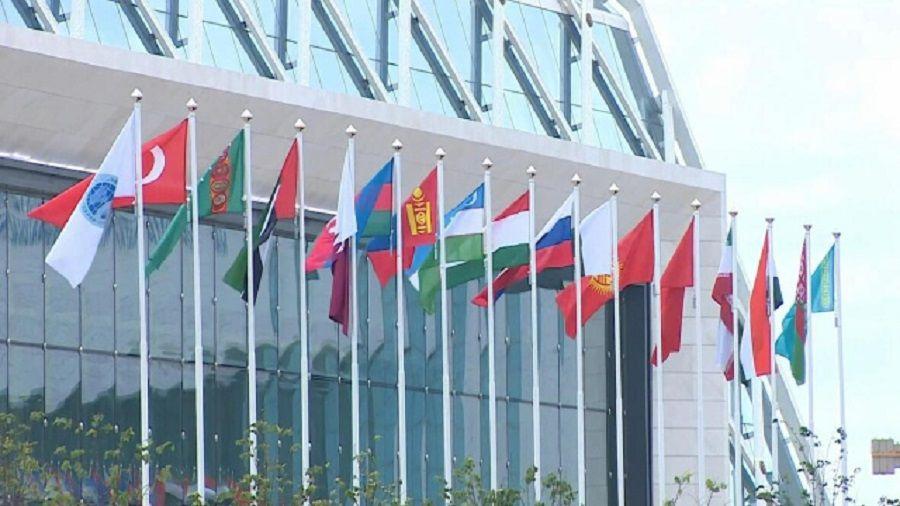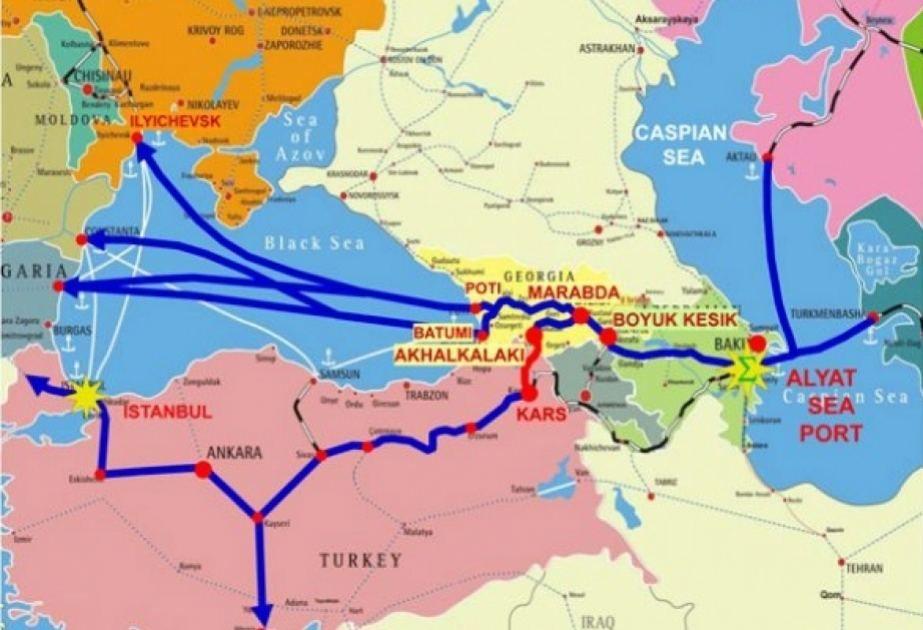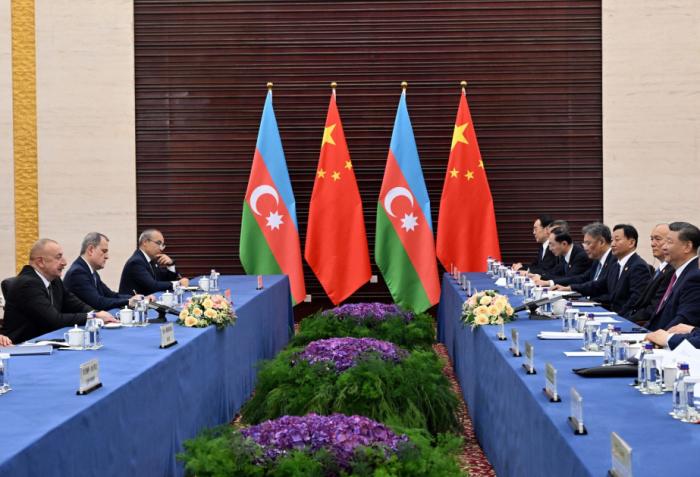Azerbaijan's bid for SCO observer status amid impending global changes Strategic analysis & implications
Azerbaijan has applied to upgrade its status from dialogue partner to observer in the Shanghai Cooperation Organization (SCO), as revealed by Mehrdad Kiaei, Iran's national coordinator at the SCO Secretariat.
Application process & Azerbaijan's strategic shift
"Several countries, including Cambodia, Sri Lanka, Armenia, Bangladesh, Azerbaijan, and other countries have applied to become members of the organization. These countries (except Bangladesh) want to change their status from dialogue partner to observer status. In principle, we are ready to consider this issue and come to a certain conclusion in agreement with the relevant applicants and member states of the organization," Kiaei stated.
The journey to full membership in the SCO starts with gaining observer status. Kiaei explained, adding that "Bangladesh is not one of the dialogue partners, but this stage can be bypassed on the way to observer status. For this, the consent of all members of the organization is needed."
Baku's intention to elevate its status within the SCO, following its interest in BRICS, is noteworthy. While primarily economic organizations, the political dimensions of these alliances are becoming increasingly significant in today's tense geopolitical landscape.

Do Azerbaijan's choices carry any risks?
Observer status in the SCO opens the door to new economic opportunities and markets in Central Asia, Russia, and China. This could significantly diversify Azerbaijan’s trade portfolio.
Enhanced cooperation with SCO member states can lead to increased foreign direct investment and participation in infrastructure projects, particularly from China’s Belt and Road Initiative (BRI).
Azerbaijan, being rich in oil and gas, could benefit from energy partnerships and joint ventures with SCO countries, potentially expanding its energy export markets.
As the world transitions to a multipolar order, Azerbaijan’s engagement with the SCO positions it favorably among emerging global powers. This can balance its relationships with both Eastern and Western blocs.
The SCO’s focus on regional security and counterterrorism aligns with Azerbaijan’s interests in maintaining stability and addressing security threats in the region.
Observer status can increase Azerbaijan's diplomatic influence within the SCO, allowing it to play a more active role in shaping regional policies.
On the other hand, Azerbaijan's significant economic ties with Western countries, especially the EU and Italy, might face challenges.
"Azerbaijan’s biggest trade partner is Italy. If we look at our total trade turnover, around 30 percent always falls to Italy. Germany and other European countries always occupy the first places on the trade partnership map of Azerbaijan."
Aligning more closely with the SCO, which includes countries under Western sanctions like Russia and Iran, could expose Azerbaijan to indirect economic sanctions or strained relations with the West.
Maintaining a delicate balance between Eastern and Western alliances requires nuanced diplomacy. Any perceived shift towards one bloc over the other could lead to geopolitical friction.
Azerbaijan as a vital chain in the Middle Corridor
Azerbaijan’s foreign policy is rooted in its national interests, reflecting a desire for independent decision-making.
"Azerbaijan's foreign policy protects the national interests of its own people and is independent. The motives behind Azerbaijan's decision to further deepen and develop its relations with BRICS and the Shanghai Cooperation Organization can be understood."

Azerbaijan's geographical position makes it a critical link in the Middle Corridor, which is part of the transcontinental transport and trade routes connecting East and West. The Middle Corridor, or the Trans-Caspian International Transport Route (TITR), plays a significant role in the flow of goods between China and Europe, passing through Kazakhstan, the Caspian Sea, Azerbaijan, Georgia, and Türkiye.
Azerbaijan has invested heavily in its transport infrastructure, including the Baku-Tbilisi-Kars railway and the Port of Baku, making it a crucial hub for the Middle Corridor. By improving customs procedures and reducing transit times, Azerbaijan can enhance the efficiency of the Middle Corridor, attracting more trade and investment to the region.
Azerbaijan’s active participation in the SCO can further facilitate regional cooperation, harmonizing regulations and standards along the corridor, thereby boosting trade flows.
Bridging East & West
Azerbaijan positions itself as a bridge between the Global South and the Global North. By hosting events such as COP29, it underscores its role in fostering dialogue between these two poles.
"Azerbaijan is one of the most important defenders of international law," and this stance is evident in its efforts to promote peace and cooperation, experts believe.

"Azerbaijan's intention to deepen and develop cooperation with BRICS and the Shanghai Cooperation Organization does not in any case target a third party. The national interests of the Azerbaijani state determine this behavior," experts say, adding that this independent policy reflects Azerbaijan's commitment to a multipolar world, where it can interact beneficially with various power centers.
Progressive or unprogressive move?
The strategic shift towards the SCO and deeper engagement with BRICS presents both opportunities and challenges for Azerbaijan. Economically, it could foster new partnerships and diversification, but it also risks complicating existing relationships with Western economies though this is low. Politically, it may enhance Azerbaijan’s global standing and influence, though it must navigate the complexities of international sanctions and geopolitical tensions.
Ultimately, Azerbaijan's move could be seen as progressive, aligning with a broader trend towards multipolarity and strategic independence. Yet, careful consideration and strategic planning will be essential to balance the benefits and potential downsides of this new alignment.








